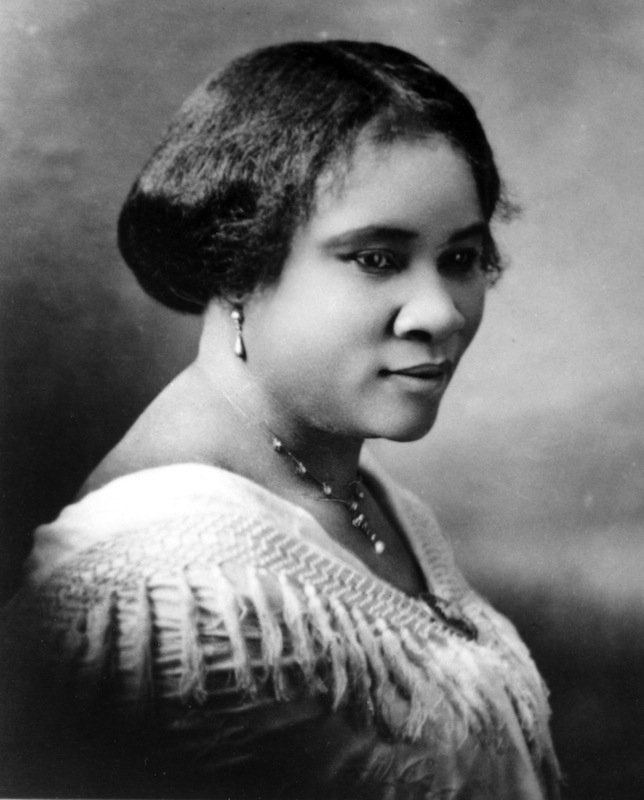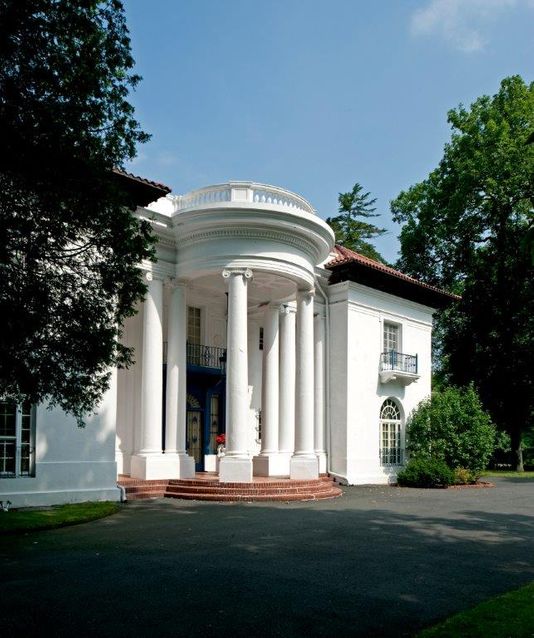In January this year, Richelieu Dennis, a 48-year-old Liberian-born entrepreneur acquired Essence, the premier black women’s lifestyle magazine, from Time Inc.
This acquisition made Essence a fully black-owned publication for the first time in nearly two decades. In subsequent months, the Essence Ventures CEO announced The New Voices Fund, a $100 million investment to support black women entrepreneurs.
The latest development from Dennis, who is now the co-founder of the personal-care products company Sundial Brands, is that he would want to use the legacy of one of America’s most powerful entrepreneurs to empower more black women business owners.

According to The Hudson Independent, Dennis wants to turn the one-time home of Madam C.J. Walker, known as the first Black woman to become a self-made millionaire in the U.S., into an incubator for black women business owners.

urbanbydesign
Walker was a
Villa Lewaro, the official name for her phenomenal estate, is a 28,000-square-foot property located in Irvington, New York, and boasts 34 rooms.
Named after her daughter, A’Lelia Walker Robinson, the home was the first to be owned by a person of colour in Irvington, which was then the richest per capita community in America.
The legendary mansion was designed by black architect Vertner Woodson Tandy and was completed in 1918. It became a meeting place for activists such as W. E. B. Du Bois, Langston Hughes, Zora Neale Hurston, and other leading figures of the Harlem Renaissance.

Walker only managed to live in the mansion for a year, as she died in her master bedroom in 1919, according to The Root.
Almost 100 years later, Dennis is hoping to honour the name of the business mogul by transforming her estate into a “learning institute, or think tank, to foster entrepreneurship for present and future generations,” reports Essence.
The black investor and philanthropist purchased the mansion this summer from Harold Doley, Jr., and his wife Helena, who had been the owners of the building for the past 25 years.
The purchase comes amidst a new zoning law in Irvington that allows historically registered buildings to be used for non-residential purposes. This implies that Walker’s estate could be used for tours, schools, and other ventures if approved by authorities.
There are talks that Dennis may transform the estate into a venue for his New Voices programmes this year but that is yet to be confirmed as proposals of new uses for the space must be approved by the Irvington Board of Trustees.

The Journal News
Meanwhile, the Shea Moisture founder has said in a statement that he hopes the estate’s “significance is much greater than just a house or property or historic landmark. It is a place where – against all odds – dreams were formed, visions were realized and entrepreneurs were born, and we look forward to returning its use to support that mission.”
“This includes utilizing Villa Lewaro as both a physical and virtual destination where women of colour entrepreneurs will come for curriculum-based learning and other resources aimed at helping them build, grow and expand their businesses,” he added.
“When people think of entrepreneurship services for women of colour, we want them to think of the New Voices Foundation and Villa Lewaro.”
This is not the first time that Dennis is investing in the Walker family; in 2013, he relaunched the Madam C.J. Walker brand and that was when plans to buy the estate began.
Dennis and his team, in 2016, launched Madam C.J. Walker Beauty Culture, a line of hair products – more than a century after Walker’s “secret formula” turned her into a self-made millionaire.

Walker’s empire was built by selling hair care products to black women at a time when such women did not have many options to treat issues with their hair
However, the Madam C.J. Walker Beauty Culture launched by Dennis is made for a much wider audience – to reach both men and women of all backgrounds and hair textures.
How it all started for Richelieu Dennis
Dennis was born and raised in Liberia where he lived with his parents. His father died when he was 8 and he moved with his mother to her native country Sierra Leone together with his sister. Both countries faced growing tensions at the time and Dennis gained a scholarship to the United States where he attended the Babson College in Massachusetts.
He graduated in 1991 when his home country and Sierra Leone were both facing civil war. His mother joined him after escaping the first civil war which lasted between 1989 and 1997.
Dennis could not return home, therefore, he teamed up with his college roommate Nyema Tubman to make soaps and other natural products. He had some recipes from his Sierra Leonean grandmother, Sofi Tucker, who made soaps with shea butter and salves.
They moved with his mother from Boston to Queens in New York after launching Sundial Brands. They sold raw black soaps and essential oils on the streets of Harlem and Bed-Stuy before they later rented a van to move the products to street vendors and shops.
They continued to grow progressively and are currently valued at $700 million in 2015, reports Fast Company. They created brands including SheaMoisture, Nubian Heritage, and Madam C.J. Walker Beauty Culture which are sold in large stores like Sephora, Target, Walmart, and Whole Foods.
They sold minority stakes to private-equity firm Bain Capital in 2015 and currently, Richelieu Dennis’s mother is Sundial’s treasurer.
Dennis founded Essence Ventures in 2017 to focus on “merging content, community and commerce to meet the evolving cultural and lifestyle needs of women of colour.”
Richelieu Dennis has never forgotten about his home country Liberia where he visits regularly. He even granted an interview to the New York Times on the acquisition of Essence magazine while on a flight from Liberia to the United States on Wednesday.
He also purchases over 250,000 kilos of raw shea butter from Africa – Ghana – where Sundial provides a seven-fold increase in income for each member of the local and women-led cooperatives that supply the product.










